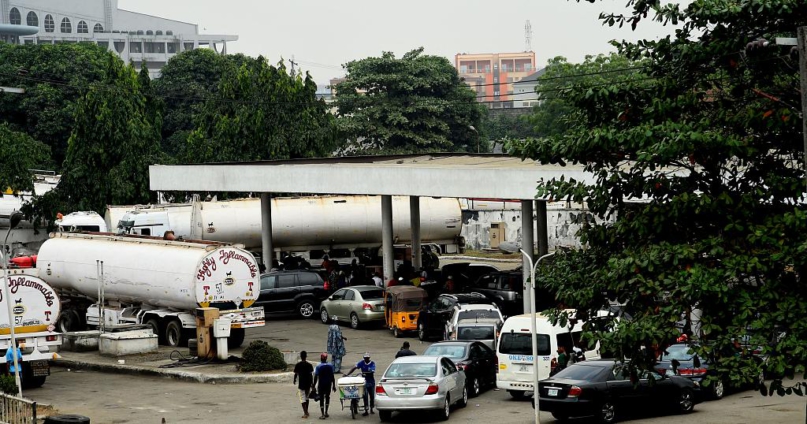Nigeria's state-run oil company said it had started a 24-hour distribution of petrol to service stations to end a week-long scarcity that has caused traffic snarls in major cities.
The fuel shortage which started last week in the commercial city of Lagos and administrative capital Abuja has caused long queues with few petrol stations selling the product.
Transport fares have gone up in several cities, curtailing services and forcing some residents and workers to walk long distances to their destinations.
Most homes in Nigeria also rely on petrol and diesel to power their generators as the public power supply is unreliable and prone to blackouts.
The state-run Nigerian National Petroleum Corporation (NNPC) blamed the situation on importation of adulterated petrol by four oil marketers into the country.
The company said in a statement late Tuesday that measures, including around-the-clock distribution to service stations, had begun.
"In order to accelerate distribution across the country, we have commenced 24-hour operations at our depots and retail outlets."
The NNPC has also directed oil marketers, depot owners and service stations to begin 24 hours loading and dispensing activities in some of their designated outlets.
The NNPC said it had enough stock to end the shortage, while more supplies were expected by the end of February.
"As of today, NNPC has over one billion litres of certified PMS (petrol) stock that is safe for use in vehicles and machineries," the company said.
"As part of NNPC's strategic restocking, over 2.3 billion litres of PMS (petrol) is scheduled for delivery between now and end of February 2022 which will restore sufficiency level above the national target of 30 days."
It said a monitoring team, comprising security agents, to ensure smooth distribution of fuel nationwide had been set up.
The company appealed to Nigerians to avoid panic buying, adding that its measures would restore normalcy in a few days.
Nigeria, Africa's biggest crude producer, depends on fuel imports to meet local demand as its four refineries are either not working at all or operating below their installed capacity.
Petrol is sold below market rate in Nigeria as part of measures to make it affordable, but the IMF and the World Bank have advised the government to stop the so-called fuel subsidy scheme to free resources for development.
Latest Stories
-
Speaker Bagbin honoured with citation for exceptional leadership
11 minutes -
Photos: They came, they bonded and had fun at Joy FM’s Party in the Park
19 minutes -
No shipper using a port in Ghana should pay for delays – GSA
24 minutes -
Bongo Naba appeals to Ya Na, Yagbonwura, others to intervene in Bawku crisis
24 minutes -
I fell in love with Ghana during 2010 World Cup – Jeremie Frimpong
1 hour -
Appoint ‘brutal’ OPK as Whip – Carlos Ahenkorah urges NPP leadership
3 hours -
Ablakwa questions alleged GH₵60m transfer to presidency for ‘special operations’
4 hours -
Dame Judi reveals apple tribute to Maggie Smith
4 hours -
NDC rejects rerun in outstanding polling station in Dome Kwabenya
4 hours -
EC has the power to re-collate results – Ayikoi Otoo
4 hours -
Putin apologises for plane crash, without saying Russia at fault
4 hours -
Footage shows NY officers beating prisoner before death
4 hours -
AngloGold Ashanti equips mastercraft persons at Sanso with tools to train youth apprentices
4 hours -
Okokobioko delivers resounding performance at 1031 Laughs & Music
4 hours -
Fatawu Issahaku’s knee injury a big blow for Leicester – Van Nistelrooy
5 hours

